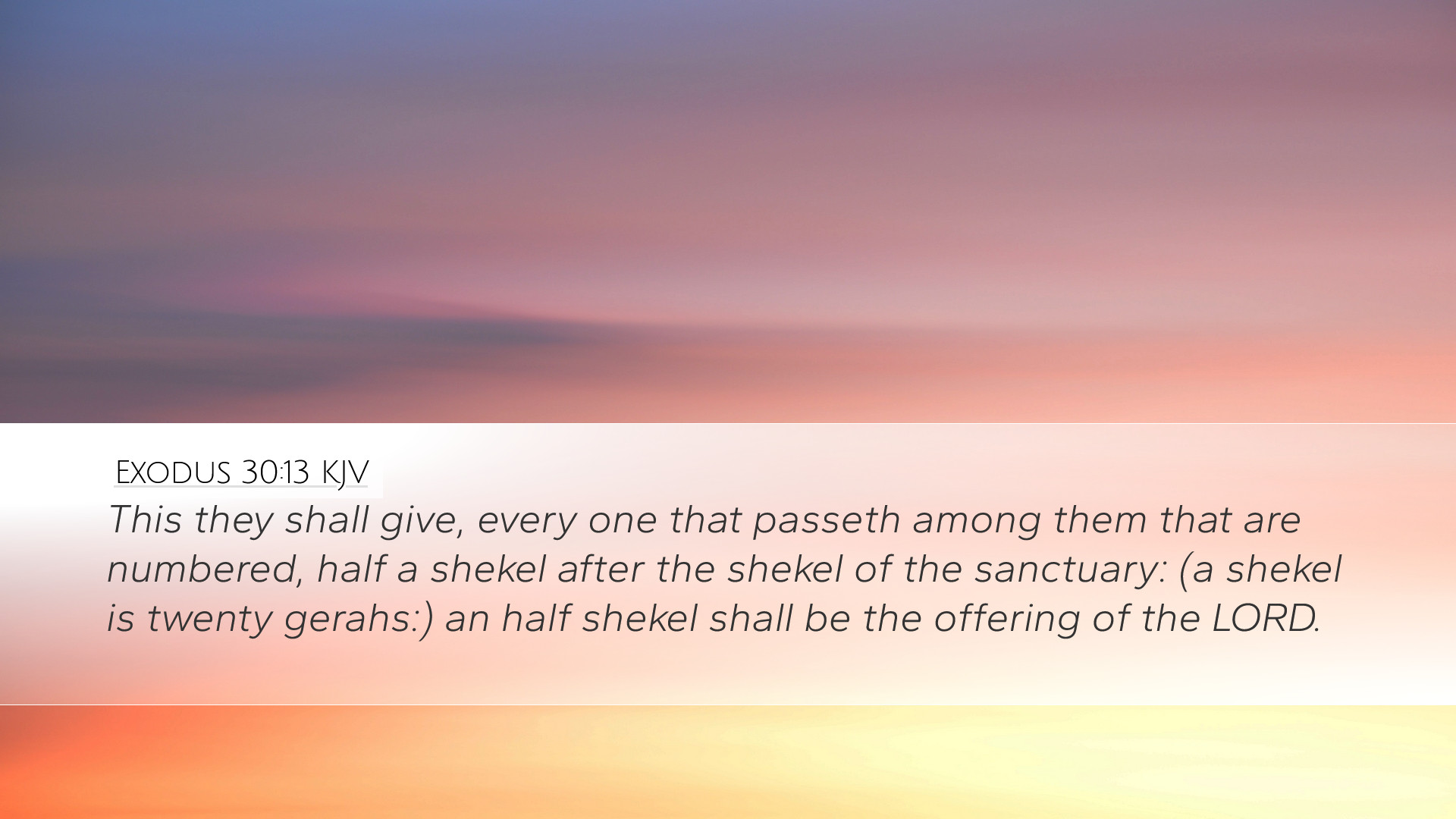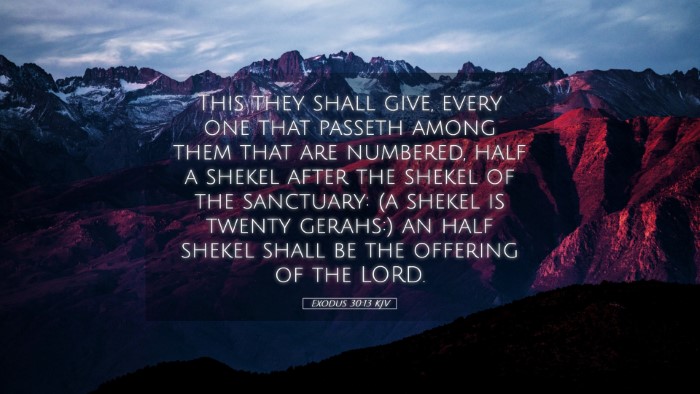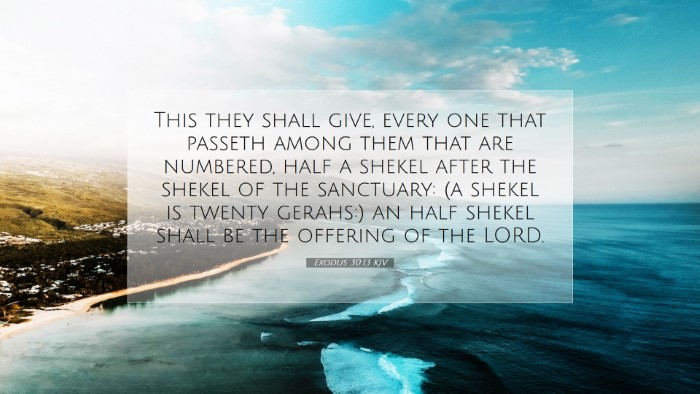Commentary on Exodus 30:13
Verse: Exodus 30:13 - "This shall they give, every one that passeth among them that are numbered, half a shekel after the shekel of the sanctuary: a shekel is twenty gerahs: an half shekel shall be the offering of the LORD."
Introduction
This verse details the instructions regarding the census of the Israelites and the associated contribution they were to make. It highlights themes of equity, divine ownership, and communal responsibility. Scholars and theologians have pondered upon its implications for understanding worship, atonement, and the individual’s relationship with God within the community.
Contextual Background
The passage in which Exodus 30:13 appears describes the Tabernacle and the various offerings associated with its service. This particular commandment provides a means for the Israelites to participate actively in the maintenance of the sanctuary, thereby establishing a structural form for worship and community identity.
Historical Setting: Following the exodus from Egypt, the Israelites were instructed to prepare for their journey to the Promised Land, which involved various laws and requirements set forth by God through Moses.
Theological Insights
1. The Weight of Contribution
Matthew Henry emphasizes the importance of the half shekel as a representation of personal commitment to God. Each individual was required to contribute equally, suggesting that no matter one’s status, everyone holds equal value in the eyes of God. This universality is a key feature of the Kingdom of God.
2. Atonement and Redemption
According to Albert Barnes, the giving of this offering is a symbol of atonement. The half shekel serves as a reminder of the need for redemption and the recognition that one's life is ultimately under the sovereignty of God. Thus, the act of giving is both an acknowledgment of God’s provision and a submission to His authority.
3. The Shekel of the Sanctuary
Adam Clarke elaborates on the specificity of the "shekel of the sanctuary," indicating its importance in the ritualistic life of the Israelites. The sanctuary shekel was a standard of value, suggesting that God's expectations for worship and contribution are grounded in divine principles, which transcend human constructs.
Practical Applications
1. Community Responsibility
This verse serves as a reminder of collective responsibility within the community of faith. As believers today, it challenges us to consider our contributions to the church and its mission, highlighting that each person's participation is vital to the health and growth of the Christian community.
2. Equality Before God
The equal requirement of the half shekel reinforces the biblical principle that all are equal in Christ. In today’s context, it is essential for churches to embrace and live out the idea that all members contribute differently, yet equally valuable to God’s work.
3. Financial Stewardship
The command to give the half shekel can inform modern principles of financial stewardship in the church. It prompts believers to reflect on their financial contributions as acts of worship and service, directly tied to God’s work in their communities.
Conclusion
Exodus 30:13, though seemingly a simple command regarding monetary contribution, encapsulates profound biblical truths about God’s desire for equitable participation, the necessity of atonement, and the significance of communal worship. As we reflect on this verse, let us be reminded of our own offerings to God—be they financial, spiritual, or communal—and strive to contribute faithfully and joyfully to the ongoing work of His Kingdom.


